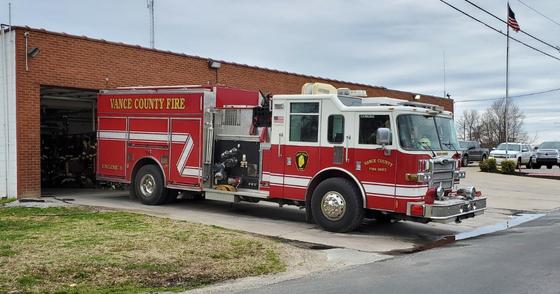Sheriffs today have plenty of work to do – after all, they are the chief law enforcement officer in the county in which they serve. But when the concept of sheriff first came to the Colonies, it was a catch-all job, making it a powerful, sought-after position.
The first sheriffs were appointed by the governor, according to local historian and North Carolina Room Specialist Mark Pace, and it wasn’t until 1829 when the job became an elected position.
Pace and WIZS’s Bill Harris reflected on the evolution of the role of sheriff in Thursday’s TownTalk segment of Around Old Granville.
William Perry was appointed the county’s first constable/sheriff back in 1746.
Pace said sheriffs in Colonial and antebellum North Carolina had a lot of power – they did everything from serve warrants and civil papers to collect taxes. There was a little added incentive for this last role, Pace said. “They got a percentage of the taxes that were paid.”
Samuel Benton, who gave the land to form the city of Oxford back in the 1760’s, held the jobs of sheriff, member of the House of Commons, justice of the county court, registrar and clerk of court, mostly simultaneously, Pace said.
These days, Benton wouldn’t have been able to hold the office – state statute says a sheriff can’t hold any two or more appointed office at the same time or a combination of elected and appointed offices.
William Henry Smith was the first sheriff of 16 sheriffs to serve Vance County. Smith and E.A. Powell rotated back and forth for a long time, Pace said, one winning one election cycle and defeated by the other in the following election.
In 1881, Powell is reported to have made a deal with challenger Isaac Jones Young, Pace said, regarding the upcoming election. “I won’t spend a dime if you won’t spend a dime,” Pace said. The two agreed, and Powell soundly defeated Young.
“And the next term, Young spent twice as much as he ever had” to regain the seat.
CLICK PLAY!
















